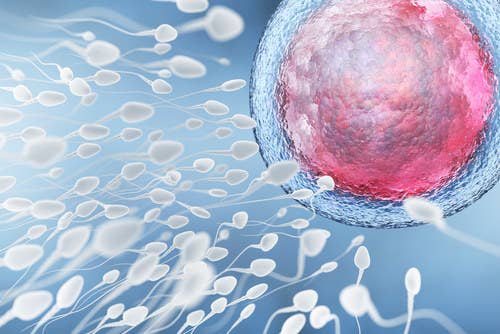
A Common Problem
Infertility is an extremely prevalent problem for couples looking to start families at various ages and points in life. Whether they are well-known celebrities who are addressing their struggles or your Average Joe's, the media has certainly progressed in taking notice.
"Infertility is still a very personal experience and is often an uncomfortable subject for couples to share with friends or even family. Even after the celebrity stories in the news, many couples are advised not to share news of their pregnancy until they are past the first trimester, in case they have a miscarriage. The result is that an experience that is common and shared by so many women and couples, feels isolating and lonely. Fertility and the unsuccessful quest for motherhood can becomes yet another reason for women to feel inadequate"says fertility expert Dr. Peter Klatsky.
About 6.1 million women ages 15-44 have difficulty getting pregnant or staying pregnant and more are turning to infertility specialists than ever before. According to statistics released by a Center for Disease Control and Prevention report, the number of deliveries using Assistive Reproductive Technologies (ART), like IVF, nearly doubled in less than the span of a decade.
There are a multitude of risk factors which may contribute to the adverse effects of a man or woman's fertility. Influences including genetics, age, weight, lifestyle, health conditions, environmental pollutants, recreational abuse, etc. are all common elements leading to potential infertility and the need of assistance through innovative reproductive technologies. According to the American Society for Reproductive Medicine, about 20% of females wait until they're 35 to start having children as they pursue advanced education or focus on career. Many women are even asserting the high cost of childcare as the culprit behind putting their dreams of motherhood second string. However biologically speaking, eggs start to ripen during the period between the late 20's and early 30's. For this reason, infertility becomes a bigger, more common problem, particularly after the age of 35. Other health related controversies may also begin to develop- which are also likely to impact fertility. As anyone ages, there is an increased chance of susceptibility to damage and they become more prone to harmful exposure of toxins.

‘The Big Lie’: It’s Feminist to Wait
Tanya Selvaratnam writes in her new book, The Big Lie: Motherhood, Feminism and the Reality of the Biological Clock, "One of the reasons I wrote the book was because I was frustrated by the conflicting messages and information out there," Selvaratnam said. "We see celebrities having kids seemingly without any problems and we have no idea what they went through. We see the end result, but not the struggle."
Poignantly, mommies-to-be have never been so chic at a time when so many women are stressed to successfully conceive. The number of women between age 40 and 44 who remain childless has doubled in a generation; in 1976 it was one out of 10, by 2006 it was one in five, according to the U.S. Census. The trend of delaying pregnancy was meant to empower women, but ironically it may have boomeranged, leaving tallies of women infertile and seeking out alternative options as they are desperate to become moms.

Calculating The Clock
IVF treatments and egg freezing is a relatively new advancement. However, it is not 100% guaranteed effective. If couples are concerned with adding on to their growing family base, fertility calculators are now revolutionizing how Millennials view their own timeline. As maturing adolescents attempt to take control over the future of their financial security and the job market, all while juggling their personal and romantic lives, they are also looking to understand the do's & don'ts, the myths, and the solutions when it comes to building their families through promising fertility methods. Fertility research is ongoing and cutting-edge.
A Woman’s Issue or A Man’s Concern
Although most people ignorantly associate fertility levels with a strong concentration that this is a woman's complication, merely 1/3 of cases are lady accountable. There is an unexplained correlation considering between the links of both partners, while men are solely responsible for the last piece of the pie.
If you or someone you know is having trouble dealing with the emotional transition, or the mental and physical roller-coaster of trying to get pregnant, continue on with the quest for guidance, help, assurance and the right options available for you. GOOD LUCK!


